Spinal Meningioma — Microsurgical Resection: treatment in the Best Hospitals of Germany
Treatment prices are regulated by national law of the corresponding countries, but can also include additional hospital coefficients. In order to receive the individual cost calculation, please send us the request and medical records.
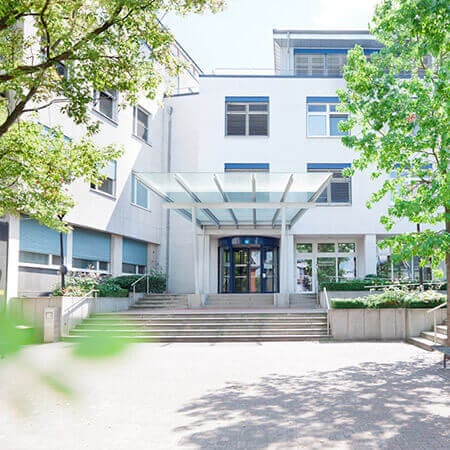
Department of Spinal Surgery
The Department of Spinal Surgery annually treats more than 720 patients with spinal cord meningioma. The specialists remove the tumor endoscopically with the best possible preservation of healthy nerve tissue. The surgery involves the use of a three-dimensional O-Arm x-ray system that provides additional protection for the spinal cord. The department is headed by Dr. med. A Bitter, who specializes in microsurgical spinal interventions.
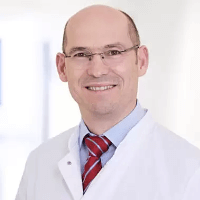
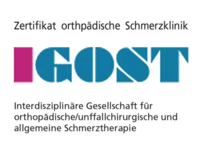
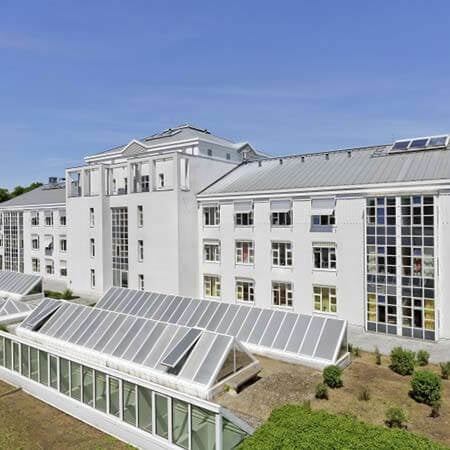
Department of Spinal Surgery
The Department of Spinal Surgery at the Vivantes Auguste-Victoria Hospital all diseases of the spine - both conservatively and operatively. Patients with herniated intervertebral discs, displacement of vertebrae, stenosis of the spinal canal or back pain are treated here. In addition, specialists of the department have a unique experience in the field of complex reconstructive and revision surgeries, which are conducted to continue or correct the previous surgical treatment.
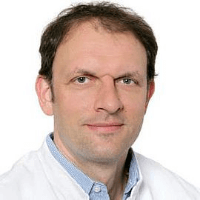
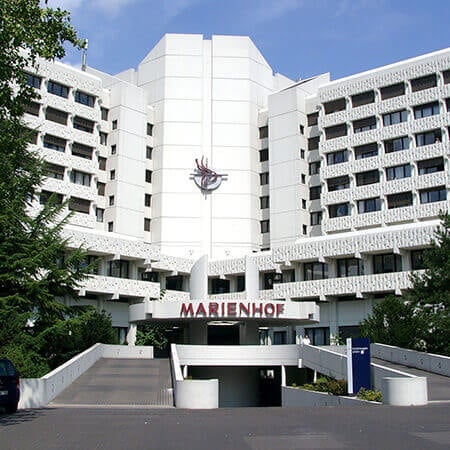
Department of Spinal Surgery
The Department of Spinal Surgery offers the full range of effective treatment methods in the area of its specialization. A highly qualified team of doctors is at the service of the department's patients, who have in their arsenal advanced conservative and surgical treatment methods for pathological changes in the spine. Spinal surgical procedures are performed in modern operating rooms, the technical equipment of which allows spinal surgeons to perfectly perform both major open surgery and sparing interventions: minimally invasive, endoscopic, and microsurgical. Surgical treatment is complemented by a carefully planned course of physiotherapy. This includes procedures such as therapeutic exercises, manual therapy, massage, osteopathic treatment, etc. The department's team of doctors consists of 10 highly qualified specialists who, together with experienced nursing staff, admit more than 1,300 inpatients annually. The medical facility is certified by the German Society for Spine Surgery (DWG) as a level II specialized center. The department's medical team makes every effort to provide each patient with optimal treatment in a pleasant and friendly atmosphere.
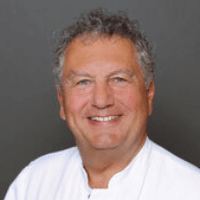
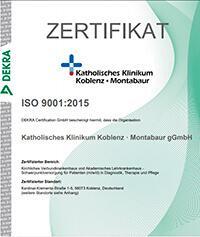
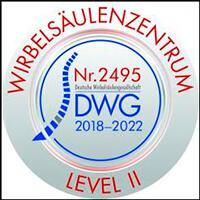
A meningioma is usually a benign tumor that grows from the spinal cord meninges. Up to 90% of meningiomas are grade 1 (the lowest grade) neoplasms, and only 1% of these tumors are malignant. The standard treatment for the disease is surgical removal. You can undergo your surgical treatment in Germany so that it is safe and has the maximum probability of helping you get rid of your meningioma forever. On our website, you can find out the cost of treatment in Germany and compare prices at different hospitals.
Content
- Principles of surgical treatment of spinal meningiomas
- How is spinal meningioma removal surgery performed?
- Minimally invasive surgery for spinal meningiomas
- Results of surgery for spinal meningiomas
- Advantages of spinal meningioma treatment at German hospitals
Principles of surgical treatment of spinal meningiomas
Although meningiomas are benign tumors, they always tend to progress. Doctors can therefore only use monitoring when the tumor size is minimal and patients have no symptoms. If neurological symptoms manifest themselves, a patient will then need treatment.
In most cases, surgery is preferred. But still, radiation therapy can be used as an alternative treatment option for patients with contraindications to surgery.
The goal of surgery is to remove the meningioma and its bed so that the tumor does not recur and to perform spinal cord decompression for the patient's neurological status improvement.
How is spinal meningioma removal surgery performed?
Microsurgical resection of meningiomas is the main treatment for this disease and is used in most patients. If you have your treatment in Germany, you can expect that the tumor will be completely resected and unlikely to recur in the future. After surgery, a neurological deficit decreases or disappears completely in most patients.
In the classic version, a laminectomy is used as a surgical approach. Doctors remove the vertebral arches, thereby approaching the spinal cord. The meningioma is then excised, and the tissues are coagulated to stop the bleeding. Doctors remove or coagulate ("cauterize") the tumor bed to avoid any continued growth or recurrence. Dura mater plastic surgery may also be performed if necessary.
Surgical treatment usually does not compromise spinal stability. In some cases, doctors have to resect a significant amount of bone tissue to get a good view of the surgical field, approach the tumor, and remove it completely. The spine will be stabilized to prevent the development of complications. Doctors can rigidly fix two vertebrae in place. This is the easiest way, but after such a stabilization option, adjacent spinal segments may be affected, since due to impaired mobility of the spine, adjacent intervertebral joints have an increased load. German hospitals often use dynamic spinal stabilization systems as they retain mobility, minimizing the risk of developing long-term complications after spinal cord surgery.
Doctors at German hospitals perform safe removal of meningiomas. Doctors use intraoperative ultrasound guidance, intraoperative monitoring, and powerful surgical microscopes to control their actions and not damage the functionally important areas of the spinal cord.
Minimally invasive surgery for spinal meningiomas
In recent years, a minimally invasive technique for meningioma treatment has been increasingly used at specialized Neurosurgery Centers. Its essence lies in a more sparing surgical approach. Doctors dissect less soft tissue and bone to remove the meningioma.
A hemilaminectomy is used for a surgical approach. When performing this procedure, doctors remove only one vertebral arch, not two, and preserve the spinous process. Such an operation is much less traumatic, although technically more difficult. However, studies show that the results of such operations at Neurosurgery Centers with extensive experience are not worse than those of standard interventions. Doctors also achieve a similar rate of complete meningioma resection, and the risk of tumor recurrence is not increased. This minimally invasive treatment method has a number of advantages. These are the following:
- minimal damage to the back muscles, thanks to which doctors can activate a patient much earlier after surgery and speed up rehabilitation;
- reduced blood loss;
- preservation of the facet complex and posterior tendon bundles;
- mild postoperative discomfort;
- the stability of the spine is maintained, so the placement of stabilizing systems is not required.
You are welcome to leave your request on the Booking Health website to get a consultation. We will select for you a hospital in Germany that specializes in minimally invasive surgery to remove meningiomas.
Results of surgery for spinal meningiomas
Meningioma treatment surgery is aimed at solving the following two problems:
- elimination of neurological symptoms;
- complete tumor removal so that the meningioma does not recur in the future.
When performing surgery, doctors always strive for complete tumor resection. If it is partially removed, this is practically a guarantee of a relapse. After 5 years, every third patient has a tumor recurrence, and more than 90% of patients have a meningioma recurrence after 15 years.
German doctors usually manage to remove the meningioma completely. The tumor bed, which is the area of the dura mater from which it grows, is also removed. Therefore, the risk of recurrence is low. Within 15 years of monitoring, the tumor will recur in only one of the three patients.
The second important objective of treatment is the elimination of neurological symptoms, which is achieved in most patients. Improvement in neurological status or complete relief of symptoms of the disease is observed in 80% of cases following surgery. 15% of patients do not have any regression of their symptoms, but no worsening occurs either. Only in 5% of cases is there an aggravation of the neurological deficit after surgery.
Poor functional outcomes after surgical treatment may occur due to the following risk factors:
- a long period of time from the onset of symptoms to surgery;
- a higher tumor grade;
- meningioma invasion into the spinal cord and spinal nerve roots with their further destruction;
- tumor calcification (hardening due to salt deposits);
- anterior fusion with the dura mater;
- elderly age;
- worse neurological status at the time of surgery.
You can undergo neurorehabilitation in Germany to improve your neurological status. It restores most of the impaired functions of the spinal cord, stimulating the regeneration of damaged tissues and also forcing adjacent spinal nerves to take on completely lost functions.
Advantages of spinal meningioma treatment at German hospitals
You can opt to undergo your treatment at one of the Neurosurgery Centers in Germany to expect good treatment results with a low risk of complications. This country is known for its top-class medical services. German hospitals are equipped with state-of-the-art equipment. The medical facilities use the latest methods of operations that will help get rid of your meningioma once and for all.
Treatment in Germany has the following advantages:
- high-precision diagnostics using advanced equipment will allow doctors to optimally plan surgical treatment and assess its results;
- minimally invasive techniques for removing spinal cord tumors are used;
- the stability of the spine is preserved;
- if doctors have to resect a significant amount of bone tissue, they will implant dynamic spinal stabilization systems instead of a rigid fixation of two vertebrae, which prevents the development of any disease in the adjacent spinal segments;
- German doctors use neuromonitoring and intraoperative ultrasound to make the operation safer;
- the frequency of complete tumor removal at the best centers reaches 98%, compared with the global average of 80-90%;
- after meningioma treatment in Germany, the tumor is unlikely to recur even in the distant future;
- early rehabilitation using the latest methods and technologies allow most patients to improve their neurological status and return to their normal lives in the shortest possible time.
You are welcome to visit the Booking Health website to find out the cost of treatment in Germany and choose a medical care program at the best price. We will help you find the most suitable hospital and organize your trip. When you make your treatment appointment through our service, the cost of treatment in Germany will be lower for you. The price reduction is due to the absence of taxes for foreign patients.
Authors:
The article was edited by medical experts, board-certified doctors Dr. Nadezhda Ivanisova and Dr. Vadim Zhiliuk. For the treatment of the conditions referred to in the article, you must consult a doctor; the information in the article is not intended for self-medication!
Sources:

